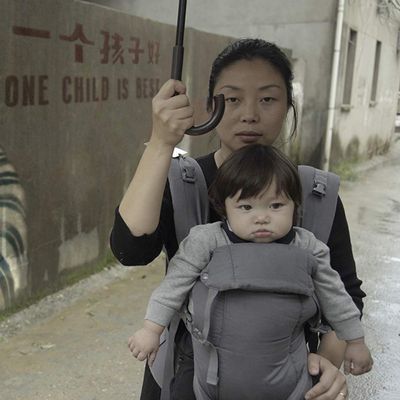
You can’t fault China for worrying about the impact of overpopulation (we all should, dammit), but the horror that its government unleashed in the name of protecting natural resources and ensuring the health of its people beggars belief. What the country’s “one-child law” ushered in — with cheerful, propagandistic songs and posters and Chinese “operas” — was an ongoing totalitarian nightmare, the scale of which is rarely appreciated outside the so-called People’s Republic. That scale is chronicled by Nanfu Wang and Jialing Zhang’s first-person documentary One Child Nation in infuriating, tragic, grisly detail. The policy ended in 2015 but the trauma still ripples through China and the world. It’s a devastating film, almost too terrible to contemplate.
Born in 1995, Wang begins with the story of her own family, which barely got away with having two children. “Barely got away” because the policy wasn’t quite as zealously enforced in small, rural towns, although her father still had to talk the village chief out of sterilizing her mother after Nanfu’s birth. The father wanted another child — a boy, of course. All Chinese families supposedly did — and do. (Nanfu’s name roughly translates as “man pillar,” and was intended for a son.) Nanfu’s brother was born five years later, and her parents admit — on camera, wincing but firm — that if he’d been female, he’d have been put in a basket and left at an outdoor market to be picked up. Or to die. The story of Nanfu’s female cousin — who was left in the market — will haunt my dreams forever. I wish I hadn’t heard it, but this sort of film calls for bracing yourself and keeping your eyes open. Funny how many of those there are these days.
The uncle who left his daughter to die in the open air is interviewed. He is being eaten alive, metaphorically, which some would see as poetic justice. But moral judgments tend to curdle in this context. What, says the village chief, now 74, was he to do? It was policy handed down from on high. It made sense. A woman who oversaw that policy still believes that the country would have “perished” without it, and that the well-being of the collective must always always supersede personal feelings. In contrast, a local midwife who performed 20 sterilizations a day — the women sometimes carried in kicking and screaming on poles, “like pigs” — has devoted her last decade to helping seemingly infertile couples conceive. Although she is “atoning for her sins,” she knows that, “There’ll be retribution for me. The state gave the orders, but I carried them out.”
Context — what a concept. How do we judge so-called “human traffickers” who sold female babies to orphanages and made a tidy profit? Those girls were given up by families who didn’t want them. Many would have otherwise been killed at birth. It’s easier to condemn the village officials who — after China legalized international adoption, in 1992 — outright abducted babies and sold them to orphanages. The corruption was breathtaking. One of the toughest things for Americans to contemplate after seeing One Child Nation is how many parents we might personally know who were given false stories about their child’s provenance. The filmmakers profile a Utah couple, Brian and Longlan Stuy, who adopted three daughters from China and have gone on to devote themselves to helping Chinese families determine the whereabouts of their abducted children and American families trace their children’s true lineage. But it turns out that many American parents don’t want to know — and who can blame them? Maybe you can. But the distant, unlikely prospect of losing girls they’ve raised as their own is frightening.
One useful thing about One Child Nation is that it puts the work of someone like Ayn Rand in perspective. The little Jewish girl who grew up in the Soviet Union had a fierce, undying rage at collectivist repression and the corruption that followed in its wake. You can almost forgive her for going the opposite way and insisting on a society built on unbridled selfishness. Maybe you can. The movie ends on a note of bitter irony. Having lost a large percentage of its young thanks to its one-child policy, the Chinese government is now a two-child nation: “One is too few, two is just right.”
Ask the government if the one-child policy was wrong and they will likely respond, What one-child policy?


